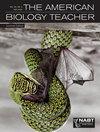用邮筒策略引出和纠正学生对生物学的误解
IF 0.3
4区 教育学
Q4 BIOLOGY
引用次数: 1
摘要
学生们经常把不符合科学思想的想法带到生物学课堂上。简单地告诉学生他们的想法是错误的并不总是有助于促进他们的科学思维。这篇文章描述了一种教学活动,允许中学生物教师以有意义的方式引出、解释和解决学生的误解。该活动为学生提供了一个机会,让他们在一个安全和无威胁的环境中与同龄人讨论他们对生物学的初步想法。更重要的是,这个活动通过推理为什么某些想法在科学上是正确的,让学生重新考虑他们最初的想法。本文章由计算机程序翻译,如有差异,请以英文原文为准。
Using a Post-Box Strategy to Elicit & Address Student Misconceptions in Biology
Students often bring to biology classrooms ideas that are not in line with scientific thought. Simply telling students that their ideas are wrong does not always help advance their scientific thinking. This article describes a teaching and learning activity that allows secondary biology teachers to elicit, interpret, and address students' misconceptions in a meaningful way. The activity provides a chance for students to discuss their nascent ideas about biology with their peers in a safe and nonthreatening environment. More importantly, the activity engages students in a process of reconsidering their initial ideas through reasoning about why certain ideas are scientifically correct.
求助全文
通过发布文献求助,成功后即可免费获取论文全文。
去求助
来源期刊

American Biology Teacher
BIOLOGY-EDUCATION, SCIENTIFIC DISCIPLINES
CiteScore
0.80
自引率
20.00%
发文量
108
期刊介绍:
The American Biology Teacher is an award winning and peer-refereed professional journal for K-16 biology teachers. Articles include topics such as modern biology content, biology teaching strategies for both the classroom and laboratory, field activities, and a wide range of assistance for application and professional development. Each issue features reviews of books, classroom technology products, and "Biology Today." Published 9 times a year, the journal also covers the social and ethical implications of biology and ways to incorporate such concerns into instructional programs.
 求助内容:
求助内容: 应助结果提醒方式:
应助结果提醒方式:


